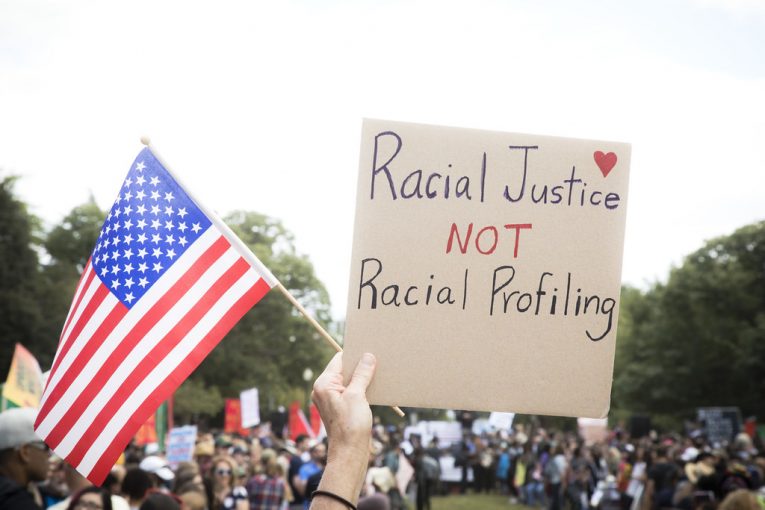

Via Flickr

This work is licensed under a Creative Commons Attribution-NonCommercial-ShareAlike 2.0 Generic License.
By Elina Sadeghian
WASHINGTON, DC – The ACLU this past week said, despite President Biden’s executive order on policing designed to strengthen democracy and promote equality and dignity, and the Biden administration’s other work, it wants the President to do much more in the area of racial profiling.
While the American Civil Liberties Union (ACLU) acknowledges some positive steps, it expressed disappointment regarding the administration’s failure to eradicate discriminatory profiling.
The ACLU said, in the statement last week, the administration highlighted progress in incentivizing local law enforcement to adopt federal use-of-force policies that rigorously restrict dangerous and deadly practices through grant programs and accreditation.
Although the administration outlined steps taken to limit the transfer of military equipment to local law enforcement, the ACLU emphasizes that further implementation is necessary.
The Department of Justice (DOJ) revised its racial profiling guidance for federal law enforcement, long awaited, said the ACLU, by communities of color and civil rights organizations.
The ACLU noted the new policy expands anti-bias protections to include disability, although it still excludes nationality and sex characteristics, and although the policy narrows it does not eliminate loopholes that allow discriminatory profiling in national security and intelligence operations.
“We welcome the improvements the Justice Department has made, but are disappointed that after so much work and communities’ calls for change, this policy falls short of a full and effective ban on discrimination by federal agencies,” said Hina Shamsi, director of the ACLU’s National Security Project
While noting the DOJ’s efforts are commendable, the ACLU stresses the new policy fails to completely ban bias across all national security activities and programs, including watchlisting, law enforcement pressuring individuals to become informants and immigration enforcement.
The ACLU urges the Department of Homeland Security to issue a comprehensive anti-discrimination policy to address these gaps.
Shamsi adds, “Federal agencies must not treat anyone as suspicious or a threat based on the religion they practice or the color of their skin.”
The executive order has also mandated federal use-of-force policies that strictly limit practices such as chokeholds and deadly force. It establishes an affirmative duty for officers to intervene and provide aid.
The ACLU said the executive order applies to federal law enforcement, and the administration plans to use federal grant programs and accreditation to incentivize law enforcement at all levels to adopt these standards.
Cynthia W. Roseberry, acting director for the Justice Division at the ACLU, acknowledges the potential impact of the executive order but calls for comprehensive implementation.
Roseberry argues, “We are cautiously optimistic and are closely watching implementation to make sure the promises made on paper are actualized at all levels of policing — using the carrot and stick of federal power.”
“We see room for improvement in implementation, for example, recalling the military equipment already in local law enforcements’ possession and clarifying that grants will be withheld from law enforcement agencies that do not have federal accreditation. Robust alternative responses — separate and apart from police — must be the priority,” adds Roseberry.
“We hope in the next year there will be more movement to end discriminatory pretextual stops, particularly in traffic enforcement, which the executive order rightly recognizes as a wedge between communities of color and police. The mandate remains to transform policing by reimagining public safety,” noted Roseberry.